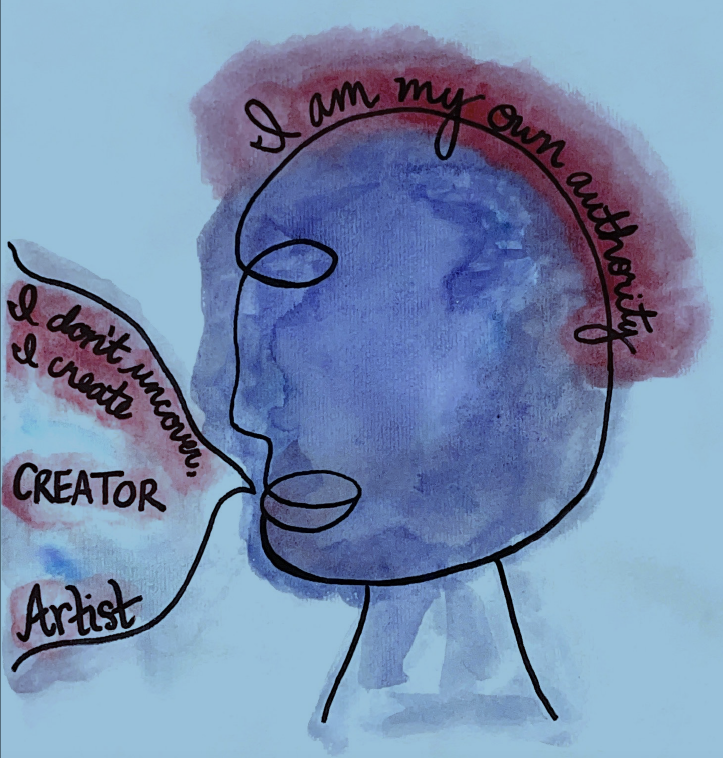By Nicole Galloway
In “Criticism and Authority in the Artistic Mode,” Bonnie Dow (2001) make the point that textual or discursive research–especially rhetorical criticism–is more comparable to art than science. That is, knowledge is created rather than uncovered or discovered. This emphasizes the researcher’s (creator’s/artist’s) authority and responsibility.

Dow’s mention of “authority” over our own work reminded me a lot of feminist grounded theory. Instead of research being some far away, out of touch concept, it should be something that is personal. We are able to have a say and authority over our creations, and we are also able to have authority over how we use our own lives in grounded theory.
This artistic presentation channels the artistic value of creation that Dow talks about in the article. Thinking of rhetorical criticism in this way very much changes the perspective from something that is found (and thus, out of my control) to something that is created (and under my full authority). Part of my creative understanding, in this way, was the actual process of creating something through my own authority (partaking in the act that Dow describes), as well as the final created object. I understand my piece of art is more literally a piece of art than rhetorical criticism is, but I tried to highlight a similar idea.

